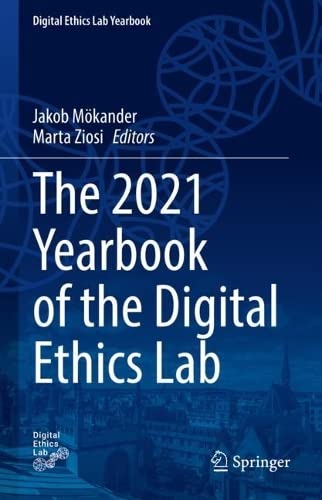

Most ebook files are in PDF format, so you can easily read them using various software such as Foxit Reader or directly on the Google Chrome browser.
Some ebook files are released by publishers in other formats such as .awz, .mobi, .epub, .fb2, etc. You may need to install specific software to read these formats on mobile/PC, such as Calibre.
Please read the tutorial at this link: https://ebookbell.com/faq
We offer FREE conversion to the popular formats you request; however, this may take some time. Therefore, right after payment, please email us, and we will try to provide the service as quickly as possible.
For some exceptional file formats or broken links (if any), please refrain from opening any disputes. Instead, email us first, and we will try to assist within a maximum of 6 hours.
EbookBell Team

5.0
50 reviewsThis annual edited volume explores a wide range of topics in digital ethics and governance. Included are chapters that: analyze the opportunities and ethical challenges posed by digital innovation; delineate new approaches to solve them; and offer concrete guidance on how to govern emerging technologies. The contributors are all members of the Digital Ethics Lab (the DELab) at the Oxford Internet Institute, a research environment that draws on a wide range of academic traditions.
Collectively, the chapters of this book illustrate how the field of digital ethics - whether understood as an academic discipline or an area of practice - is undergoing a process of maturation. Most importantly, the focus of the discourse concerning how to design and use digital technologies is increasingly shifting from ‘soft ethics’ to ‘hard governance’. Then, there is the trend in the ongoing shift from ‘what’ to ‘how’, whereby abstract or ad-hoc approaches to AI governance are giving way to more concrete and systematic solutions. The maturation of the field of digital ethics has, as this book attempts to show, been both accelerated and illustrated by a series of recent events. This text thereby takes an important step towards defining and implementing feasible and effective approaches to digital governance. It appeals to students, researchers and professionals in the field.